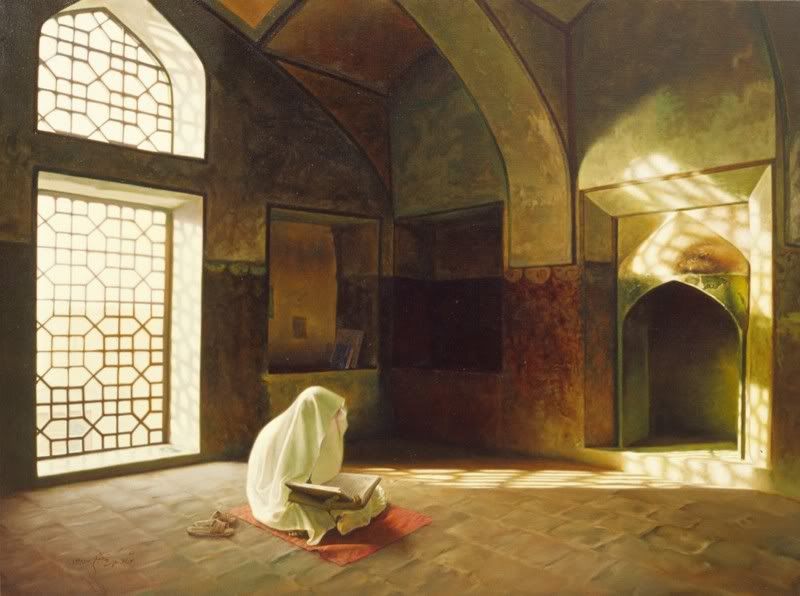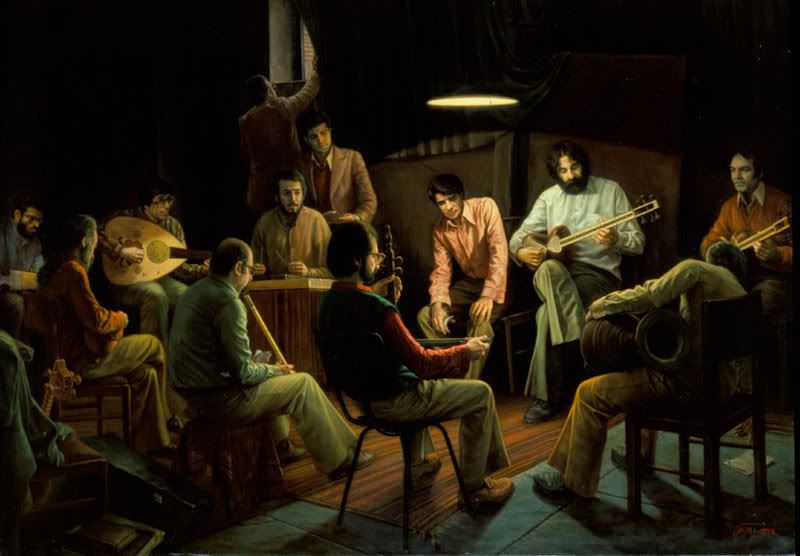
Shahrad Malek Fazeli, "Retiring with the Qur'an" (2005)
1. In the name of Allah, Most Gracious, Most Merciful
2. Praise be to Allah, the Cherisher and Sustainer of the worlds;
3. Most Gracious, Most Merciful;
4. Master of the Day of Judgment
5. Thee do we worship, and Thine aid we seek.
6. Show us the straight way,
7. The way of those on whom Thou hast bestowed Thy Grace, those whose portion is not wrath, and who go not astray.
Quran Sunah 1 (The Opening)
Neil Bell, "A Recent Visit to Tehran" (May 2006)
Therefore if a man has in his heart that love to Allah which the law enjoins, it is perfectly lawful, nay, laudable in him to take part in exercises which promote it. On the other hand, if his heart is full of sensual desires, music and dancing will only increase them, and are therefore unlawful for him. While, if he listens to them merely as a matter of amusement, they are neither lawful nor unlawful, but indifferent. For the mere fact that they are pleasant does not make them unlawful any more than the pleasure of listening to the singing of birds or looking at green grass and running water is unlawful. The innocent character of music and dancing, regarded merely as a pastime, is also corroborated by an authentic tradition which we have from the Lady Ayesha, who narrates: "One festival-day some Africans were performing in a mosque. The Prophet said to me, 'Do you wish to see them?' I replied, 'Yes.' Accordingly he lifted me up with his own blessed hand, and I looked on so long that he said more than once, 'Have not you had enough of watching?"...
Al-Ghazali, The Alchemy of Happiness (11th century)
Iman Maleki, "Composing Music Secretly" (1996)
-LoA
4 comments:
I cannot count the times when I've been told that I'm a sinner for enjoying music.
What are your thoughts about music and Islam?
part of what i wanted to show was that these two things - the withdrawal into prayer and meditation, and the withdrawal into companionship and music were not in contradiction with one another. i do not see any tension, for instance, in saying that iranians are a people for whom islam is very important to their lives, and iranians are a people who seem to love haifa wehbe.
i thought the story told by al-ghazali about the prophet and aisha captured that.
i also think that many of the images of iman maleki suggest that same idea.
it is very good to hear from you,
LoA.
Thank you, it's always nice to read your blog:)
No I agree and you were very clear in your point. The confusion on my part starts when people are aware of this incident with the Sayda Aisha (RAA) and they still strongly believe that music is haram.
Although in Sudan religious contemplation usually takes form in song and movements that resemble dance. Yet despite all this, some religious figures insist listening to music adversely affects your ability to memorize the ‘suwar’ from the Quran.
Assalaam-u-Alaikum Wa-Rahamtullahi Wa-Rabaktu how are you well it is the imam malik i would say that music is haram!
Post a Comment